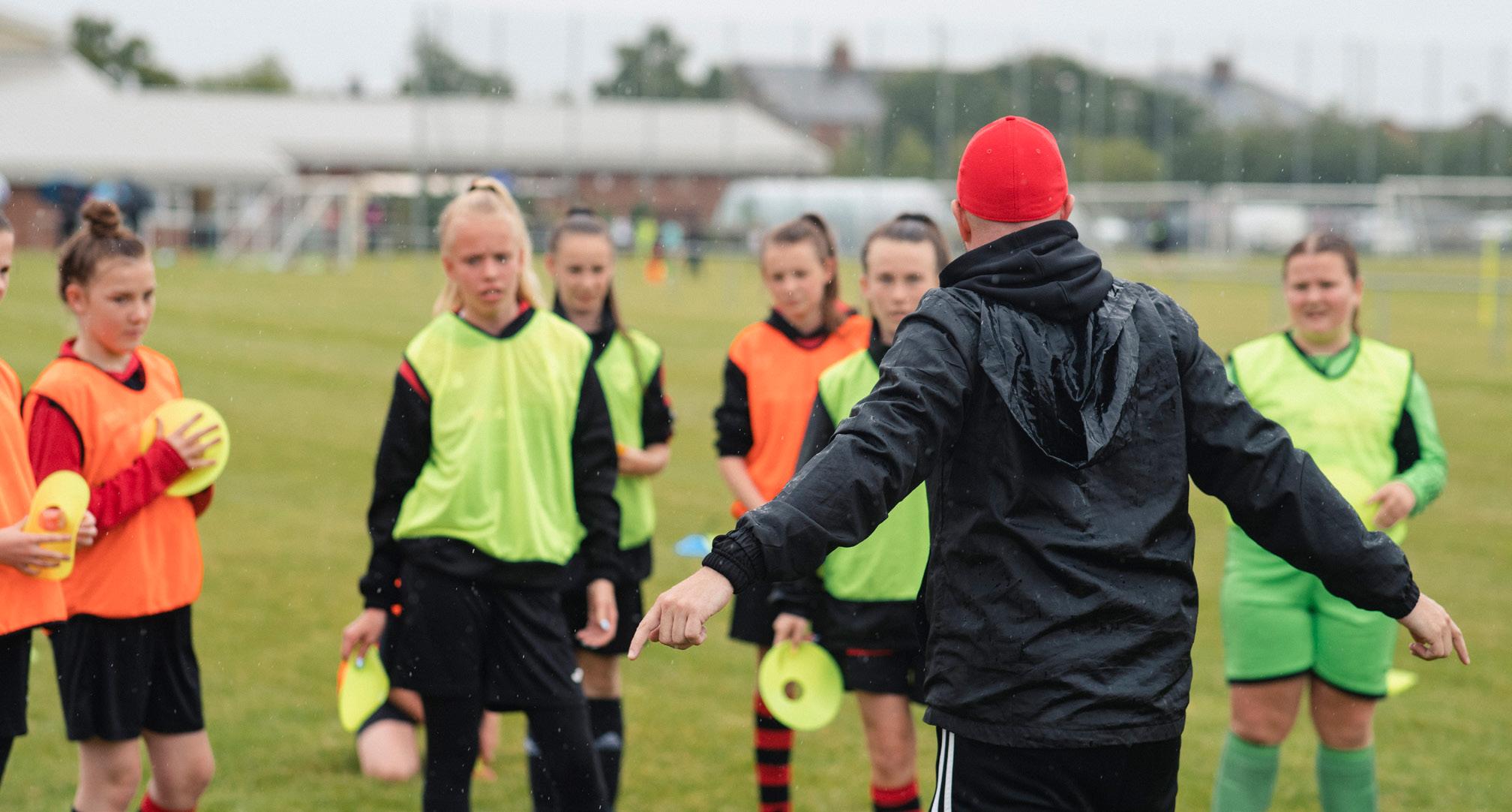
19 minute read
References
57% reported having learnt lots of new content from the workshop
52% reported a slight increase in their confidence to implement ACEinformed practice within their organisation
Advertisement
48% reported a significant increase in their confidence to implement ACE-informed practice within their organisation
When queried about what revisions they would make to the workshop, there was consensus amongst participants that it would have been useful if the workshop were tailored to the sporting environment. And then when asked about what assistance they would need to implement their ACE-related learning into practice, some suggested that they will need additional training for themselves and their staff, high-level buy-in from all agencies and support from the Hub for future direction.
Qualitative data
Following thematic analysis, three themes were identified: 1) prior awareness of ACEs and motivation to engage, 2) impact of training, and 3) sustaining the ACE agenda. The following section reports on each theme.
Prior awareness of ACEs and motivation to engage
At the start of each interview participants were asked about their awareness of ACEs prior to the workshop. Results showed that the majority had some prior knowledge, although limited, but for others ACEs were a new concept:
“I’ve worked in areas of social need before and worked with hard to reach groups through the medium of sport before, but specifically with this type of agenda, I was generally a novice.” - Interview 1
“Well, I’d done a little bit of work on ACEs stuff before so I had a little bit of an idea, but nowhere near as much detail as was given on the course, for example you know, the exact nature of what ACEs are and number of ACEs.” - Interview 2
Supporting young people’s needs appeared to be a significant motivating factor , when participants were asked about their personal motivation to engage with the ACE Support Hub’s activities. There was a consensus amongst participants that sport can play a major role in promoting wellbeing and it was thought that the workshop may be able to provide some valuable insight into the way in which themselves and their organisation may be able to help those affected by ACEs:
“But in terms of relevance…it certainly is relevant because of the target group that we’ve always wanted to work with….A lot of my team work in some difficult schools, for want of a better phrase, and I just think to be aware that some of the young people that they’re working with are likely to have gone through these experiences was of use…personally I didn’t understand how prevalent it was…it’s almost like another…almost separate level of safeguarding.”- Interview 1
Impact of training
Participants were asked to indicate what they had learnt from the workshop and how this had impacted their work-related practice.
Awareness of ACEs, vulnerability and impact on health
One of the most widely cited aspects of the workshop reported by participants was the awareness it gave them about the prevalence of ACEs within the Welsh population:
“…personally I didn’t really understand… how prevalent it was. You know, the high percentages of young people that have suffered these things.”
- Interview 4
As well as the impact that ACEs can have on individual wellbeing:
“One is about having an appreciation, an understanding of the crap that kids have been through, know what I mean, and that’s the easiest way to summarise ACEs, is kids will face crap as they grow up and the more crap they face, the more likelihood of x, y and z to happen…And then you can spin that out in terms of the health, in terms of mental health or physical health, so there’s a whole…vulnerability issue in there as well isn’t there.” - Interview 1
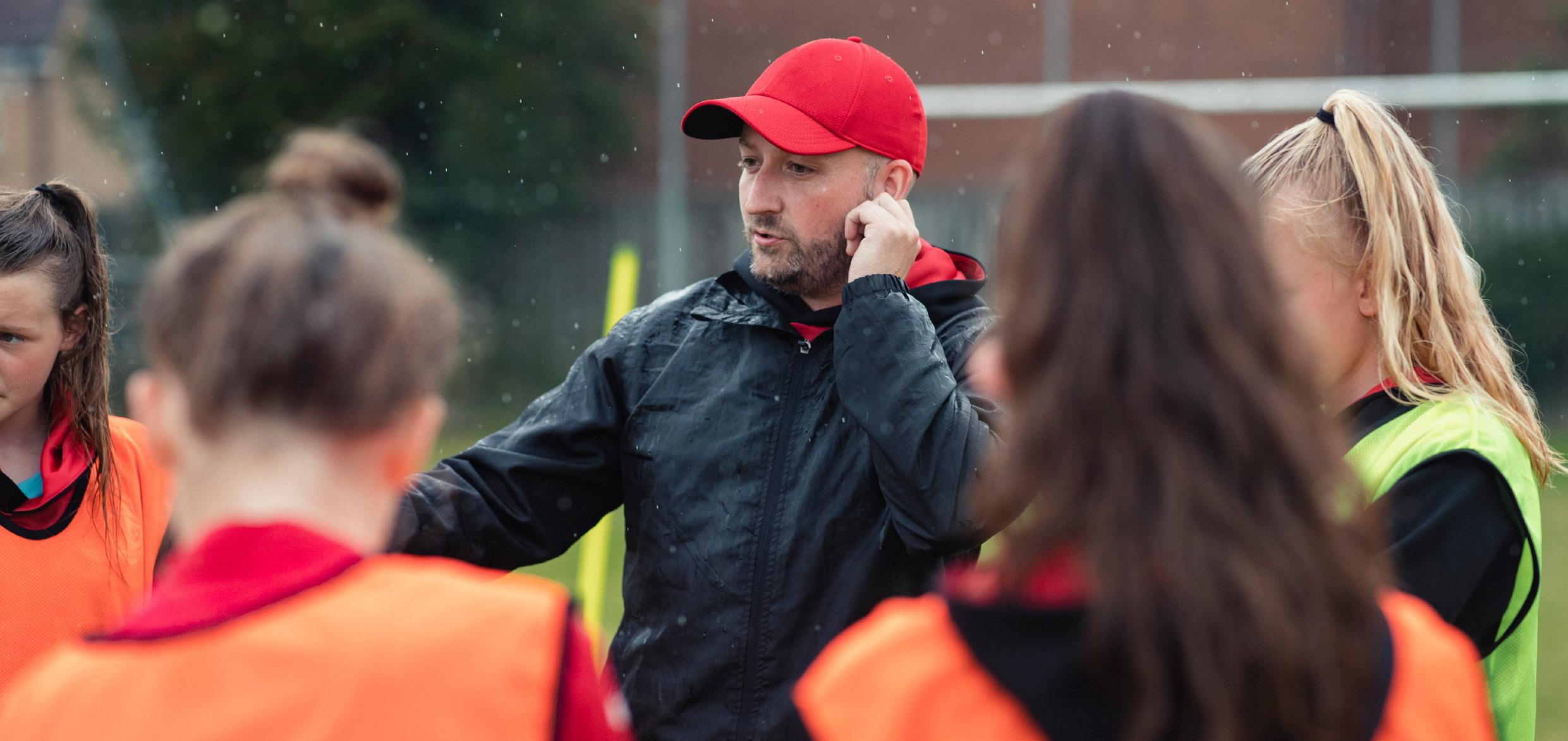
Ultimately, through an increased awareness in these areas, it appeared as though participants began to conceptualise what they were currently doing, and what they might be able to do in the future to reduce the potential burden that ACEs may have on the Welsh population:
“I had an understanding of the basics of ACEs but I wasn’t really sure how that tied in specifically with the way things are going, where funding is being placed and where our responsibility was in sport. And that was very… after the training that was, it was all put together and I was able to kind of, maybe… yeah, explain things that maybe I’m already doing but have an understanding that I’m actually in this process as well, I am involved in this process, so it was certainly informative.” - Interview 6
Strategic change
When asked about how the workshop had influenced their work-related practice, participants reflected on how they had begun to reconsider their strategy for dealing with vulnerability. For one individual, it had influenced them and their organisation to recruit individuals with different skills:
“…it certainly pushed us to – as a result of the ACE training – it pushed us and was like another piece in the puzzle to push forward with looking to recruit people with slightly different skills and maybe what wouldn’t’ve been recruited before.” - Interview 6
For another, it had motivated them to cascade the learning to their colleagues so that those on the ‘front-line’ may better understand the needs of the children they work with:
“We’ve already got a couple of projects in which officers are now using the ACEs information to just help them with an understanding of the kids that they are working with.” - Interview 5
And for others, the training had changed the way in which their self and their organisation collaborated with other partners to support vulnerable children:
“...since the training we had, we’ve made contact with our social… our children and family services team within the local authority … and tried to find out what they do directly, and we’ve managed to get ourselves a good contact within the looked after children team… and we now have an objective on what they call the corporate parenting board…to make sure that children who are looked after have access to sport, physical activity opportunities directly, and we will put resources into that area. So it’s kind of… we’ve opened up a channel of work and formalised a channel of work that we didn’t have before.” - Interview 1
Building upon these reflections, it also became apparent to some participants that many of the individuals within their organisation were not adequately trained to deal with ACE-related issues:
“[The training] brought out probably the knowledge that actually we are underqualified in some ways and under-equipped to work with some of the young people that we have. I think sometimes like the way it’s been communicated and what’s been expected of us doesn’t necessarily completely align with where we’re actually at in terms of like professional qualifications. So I would love to utilise the ACE Hub and the resources to push to find what we’re missing and what we need to… what gaps we need to fill to make sure that we are qualified and well informed at dealing with ACEs.” - Interview 6
Consequently, this meant that some were seeking further ACE-related training to meet such demands, and then from this, produce targeted interventions:
“So the intention is that further down the line, after our staff undertake the accredited ACEs course, which I believe is the next step on from the awareness course, once they have done that we will be looking at doing some targeted interventions, with the information we’ve got about key places.” - Interview 5
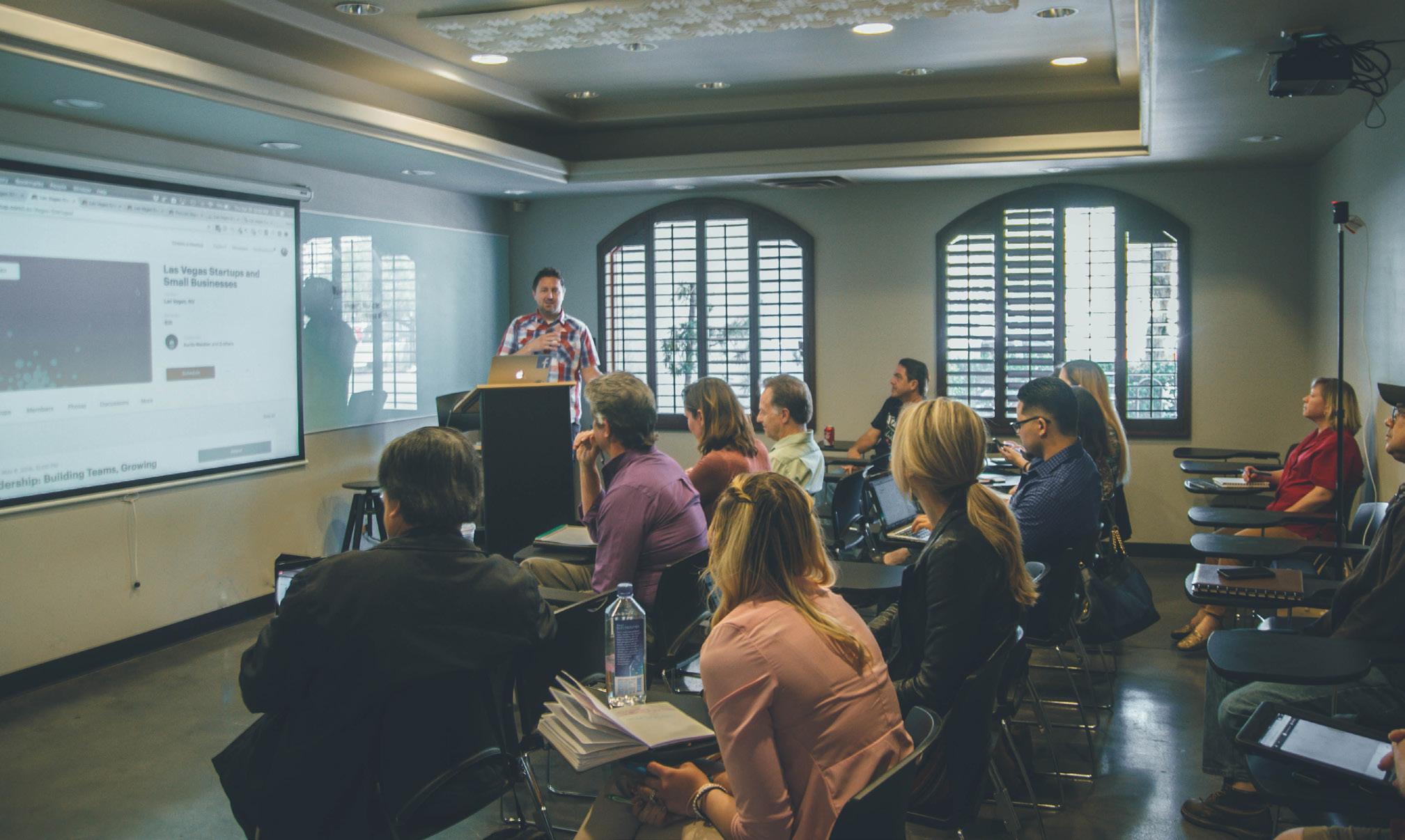
Sustaining the ACE agenda
Participants were asked to indicate what they had learnt from the workshop and how this had impacted their work-related practice.
Offering a different workshop to frontline staff
Although the workshop was reported to be highly beneficial by all, it was thought that frontline staff may need a different type of approach; as most participants within this study held a managerial position and the delivery of the workshop suited only their role (more higher-level). When considering an alternative approach, it was suggested that more attention should be had on the practicalities of how one may be able to identify and support a child affected by ACEs
“...it was aimed at the right level, however, if my staff were to go on it, it would need to be sort of more hands-on, you know, because…and dealing with young people who are often you know, in the midst of things, and what to look out for, how to respond to certain behaviour, things like that. So targeted-wise, it was good for us as managers from the stand…however, so we spoke briefly on the regional group the other day about the need for, you know, people on the ground, running the clubs, running targeted groups and things like that to have sort of something slightly more tailored, I suppose.” - Interview 2
Understanding the role of sport and ACEs
Although participants appreciated the important role that sport can have in helping individuals overcome the effects of ACEs, especially when considering the high proportion of voluntary staff in sporting organisations, and whether it is their role to support individuals affected by ACEs, the question was raised as to ‘what was the role of the sports sector and ACEs’:
“…they haven’t necessarily gone through that type of training and I wouldn’t want to put them or a young person in an awkward situation by having kind of a one to one on the back of them suspecting that a one person’s has… suffered four ACEs or more. I wouldn’t want to put my member of staff or that young person in that position without them being fully aware of, you know, the consequences and that kind of thing. At the end of the day, they’re not social workers…” - Interview 1
It was therefore suggested that greater collaboration with other agencies and organisations was needed as to understand where sport may be able to compliment the ACE agenda. However, this was not always straightforward; particularly in the context of local authorities and how services are structured differently:
“Each local authority… deals with things differently and is configured differently, I mean in some local authorities their physical activity service sits within social services. Some sit within education, with me we sit in culture. So it’s all very different in terms of how easy or not it is to work with the groups that we need to work with.” - Interview 1
There appeared to be many ACE-related projects currently ongoing in Wales, with possible over-lap:
“I don’t want people sat around the table, like, week in, week out, having ACEs training. So if we go and roll it out and the… come to it, and then they’re like, oh, we went to something on this last week, do you know what I mean, it just doesn’t look great on us that’s all.” - Interview 3
However, in an attempt to combat this, one individual had begun to conduct a mapping exercise with colleagues in their local area:
“What we’ve asked of each other is to go away and do a bit of a mapping exercise, so for all those local authorities, mid and west Wales area to come back to our next regional meeting in a month or so with a bit of an understanding of what’s happening in our local area linked to ACEs. So are there other departments, youth service, so for example schools, are there things that are happening in other departments or areas which are linked to ACEs, so just trying to get an understanding of what awareness there is and whether there are any projects or outcomes which are already set in place.” - Interview 5
Discussion 8
Considering the prevalence of ACEs in Wales and the well-established impact of negative health outcomes (1-4), it is essential for those working with individuals impacted by ACEs to be knowledgeable and confident in the care and service they provide. Poor outcomes in later life can be attributed to childhood experiences, which have a detrimental impact on child development. Those working within the sports sector are well placed to support children who may be experiencing ACEs, and an ACE-informed sports approach has the potential to equip sport settings with relevant knowledge and skills to respond to children who experience ACEs or trauma, as well as supporting the ‘whole coach’ experience advocated by Sport Wales.
The pilot of the ACE-awareness training within the sports sector was delivered across two workshops involving multi-disciplinary sports groups and professionals in early 2019. Our rapid evaluation explored the ACE-awareness content and delivery, and the usefulness of specific educational elements to support an ACE-informed approaches in sports settings. The findings presented in this report offers sector insight to support the future development of ACE-informed approaches that can be sustainably embedded within sport infrastructures.
Our evaluation found evidence of high levels of participant confidence in their knowledge and awareness of ACEs immediately after attending the workshop. The highest reporting confidence areas related to understanding what ACEs are, their impact on a child’s development and the longer term impacts of ACEs into adolescence and adulthood. Participants reported the lowest levels of confidence in identifying a child experiencing trauma and how to apply an ACE/ trauma-informed approach in their place of work. These findings are in line with evaluation findings from the delivery of ACE-awareness training in secondary schools; suggesting that while staff feel more confident in their recognition of ACEs and their impacts, they typically feel less confident in their understanding to translate this knowledge to practical application in the workplace.

Through our qualitative work participants reported prior, but limited, knowledge of ACEs; for some it was an entirely new lens through which to view their interactions with children.
The majority of participants in the workshops (n=21) found the structure and content of training within the workshops to be at the right level, although one third of participants reported that the training had only partly increased their confidence to adopt an ACE-informed approach to their work. At a broader good practice level, being ACEinformed includes person-centred and compassionate care approaches – a key tenet behind the ambition for greater ACE-awareness. Whilst ACE-awareness training offers the opportunity for workforce development, alone it will not bring about the transformational organisational change require to tackle ACEs at a population health level. A deeper understanding of the cultural requirements of those professionals working in sport is required in the development of future training materials.
8.2 Views on ACE-informed training in sports
Supporting young people’s needs appeared to be an important motivating factor in learning more about ACEs and their impacts. Participants’ recognised that sport, in general, has the potential to play an important role in promoting wellbeing and the workshop stimulated personal insight to the way they could help those affected by ACEs, as well as the organisations they work for.
Within the sports professionals who attend the workshops, there was limited awareness of the prevalence of ACEs in Wales, as well as the impact they can have on individual wellbeing. This insight towards child vulnerability had encouraged participants to consider how their professional contribution in sports to the ACE-agenda could help to reduce the potential burden that ACEs may have on the Welsh population. Some participants reported the training had already begun to influence their workrelated practice, such as considering the skills required by individuals at recruitment stage. Others had built the ACE-awareness information in to projects led by sports officers, and reviewed the way they collaborate with other organisations to support vulnerable children.
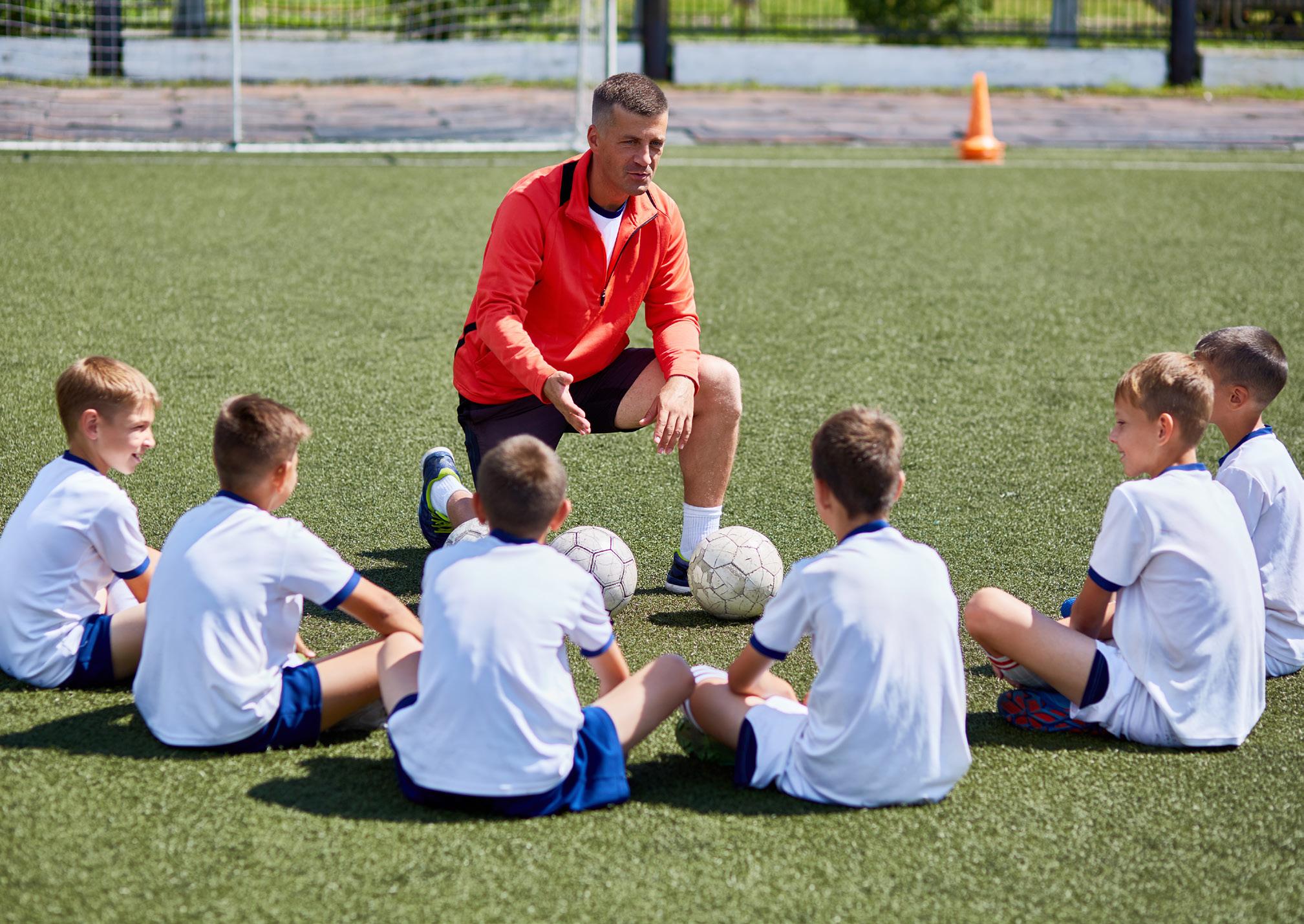
8.3 Overcoming barriers to becoming ACE-informed in sports
The ACE-awareness training had also highlighted to participants, that some individuals within their organisations were not adequately trained to deal with ACE-related issues. This was articulated as a tension between the professional sports qualifications held by staff and what is being expected from those working in the sports sector with vulnerable children. This emphasises a need for additional ACEinformed training or volunteering and possibly targeted interventions that can be used by sports staff. The number of voluntary staff who work in the sports sector was seen as a possible barrier to building ACEawareness across the wider workforce, suggesting that there is an important balance where the training needs of professionals intersects with those in the voluntary clubs.
Participants concluded that the workshop had suited their professional /strategic level but that any future training should focus on the practicalities of identifying and supporting a child affected by ACEs, which is proportionate to their role. This supports the findings of a recent national survey of professional groups on their awareness and knowledge of ACEs, which identified that future ACE-related training should include more information on how to support children and families, adults and communities to prevent and mitigate the impact of ACEs. Findings suggested the need for a more wide-reaching training to provide the practical ways in which individuals and specific organisations can play their role in the ACE agenda, with a more joined-up approach amongst all sectors needing to be established (16).

There is a need for additional ACE-informed training and possibly targeted interventions that can be used by sports staff. The number of voluntary staff who work in the sports sector was seen as a possible barrier to building ACE-awareness across the wider workforce, suggesting that there is an important balance where the training needs of professionals intersect with those in the voluntary clubs.
Next Steps 9
This evaluation has highlighted the work of the CWW ACE Support Hub in promoting awareness of ACEs and informing the response to ACE mitigation for sport in Wales. The findings in this report should help inform the development of future training within the sports sector, and should take in to account the following:
Training in these workshops increased participants’ knowledge and awareness of ACEs and their impacts, but they were less confident to apply these new skills in an ACE/ trauma-informed way. New training should focus on developing softer skills for coaches/sports staff (such as the personal attributes which enable someone to carry out their role) which include how to support a child who may have experienced ACEs or trauma, and how to speak with that child sensitively.
Given the range and size of sports clubs across Wales, and that the workforce is often made up from volunteers, consideration should be given to the different emphasis placed on those working professionally and voluntarily within the sports sector, in terms of the training content and skills it seeks to develop in staff with regard to being ACE-informed and context appropriate.
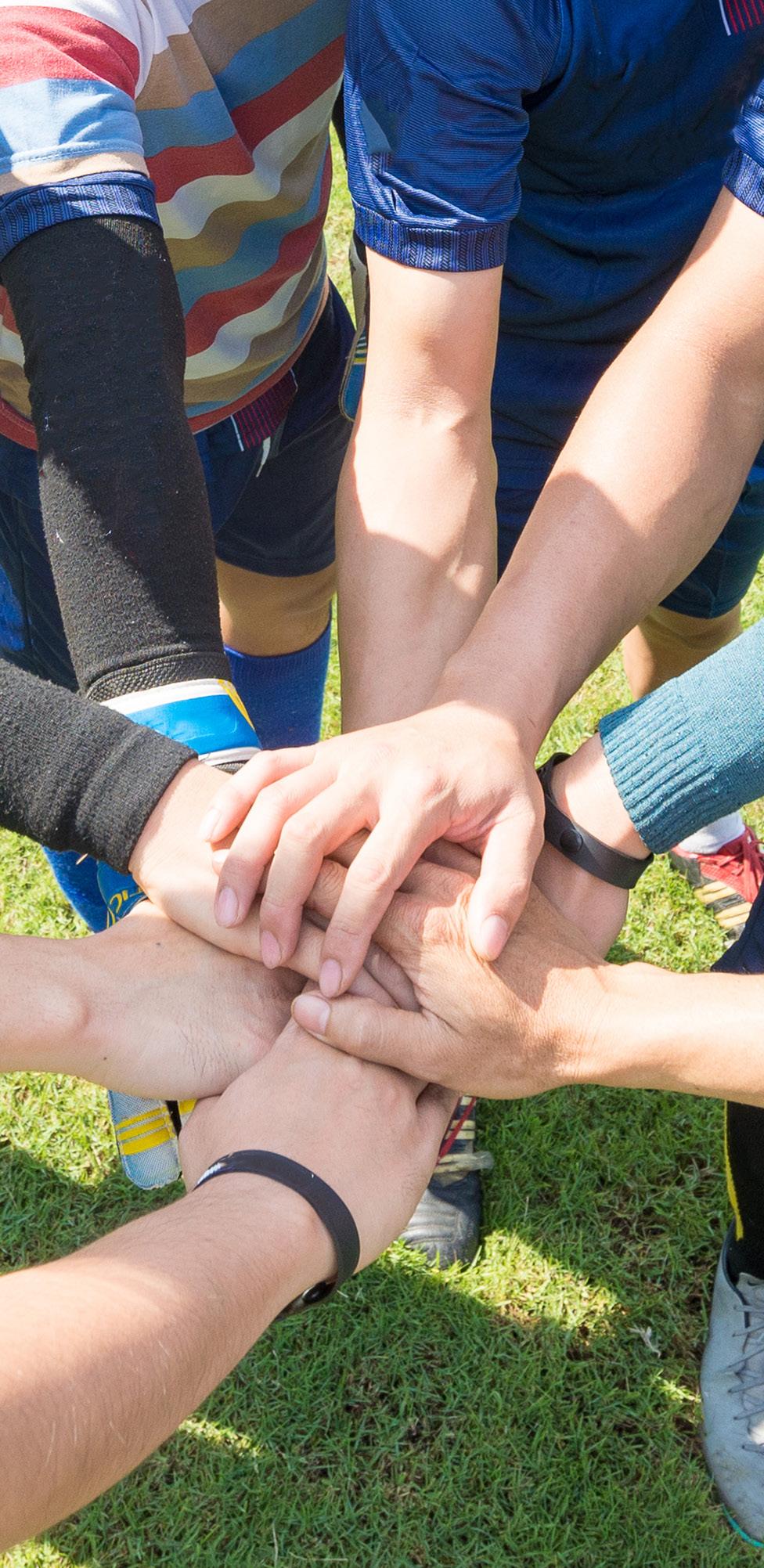
Further training should build on the practical ways in which individuals and specific organisations can develop their role in the ACE-agenda, with a more joined-up approach amongst all sectors who intersect with children and sport, and give consideration to how the training can be embedded in to sustainable systems within sport such as through existing safeguarding programmes.
References 10
1. 2. 3. 4. 5. 6. 7. 8. 9.
Ashton K, Bellis MA, Davies A, Hardcastle KA, Hughes K. Adverse childhood experiences and their association with chronic disease and health service use in the Welsh adult population.
Public Health Wales. 2016. Available from: click here [Accessed 8th June 2020]
Ashton K, Bellis MA, Hardcastle KA, Hughes K, Mably S, Evans M. Adverse Childhood Experiences and Adult Mental Well-Being in Wales. Public Health Wales. 2016.
Available from: click here [Accessed 8th June 2020]
Felitti VJ, Anda RF, Nordenberg D, Williamson DF, Spitz AM, Edwards V, Marks JS. Relationship of childhood abuse and household dysfunction to many of the leading causes of death in adults: The Adverse Childhood Experiences (ACE) Study. American Journal of Preventive
Medicine. 1998; 14(4):245-58. Available from: click here [Accessed 8th June 2020]
Bellis MA, Hughes K, Ford K, Hardcastle KA, Sharp CA, Wood S, Homolova L, Davies A. Adverse childhood experiences and sources of childhood resilience: a retrospective study of their combined relationships with child health and educational attendance. BMC Public
Health. 2018; 18(1):792. Available from: click here [Accessed 8th June 2020]
Riley G. ACE Support Hub Evaluation Framework. Public Health Wales. 2018.
Internal Report: Unpublished.
Salmon P. Effects of physical exercise on anxiety, depression, and sensitivity to stress: a unifying theory. Clinical Psychology Review. 2001; 21(1):33-61. Available at: click here
[Accessed 8th June 2020]
Motl RW, Birnbaum AS, Kubik MY, Dishman RK. Naturally occurring changes in physical activity are inversely related to depressive symptoms during early adolescence. Psychosomatic
Medicine. 2004; 66(3):336-42. Available at: click here [Accessed 8th June 2020]
Dishman RK, Hales DP, Pfeiffer KA, Felton GA, Saunders R, Ward DS, Dowda M, Pate RR. Physical self-concept and self-esteem mediate cross-sectional relations of physical activity and sport participation with depression symptoms among adolescent girls. Health Psychology.
2006; 25(3):396. Available at: click here [Accessed 8th June 2020]
Crews DJ, Lochbaum MR, Landers DM. Aerobic physical activity effects on psychological well-being in low-income Hispanic children. Perceptual and Motor Skills. 2004; 98(1):319-24. Available at: click here [Accessed 8th June 2020]
10. Eime RM, Young JA, Harvey JT, Charity MJ, Payne WR. A systematic review of the psychological and social benefits of participation in sport for children and adolescents: informing development of a conceptual model of health through sport. International Journal of Behavioral Nutrition and Physical Activity. 2013; 10(1):98. Available at: click here [Accessed 8th June 2020]
11. Taliaferro LA, Rienzo BA, Miller MD, Pigg Jr RM, Dodd VJ. High school youth and suicide risk: exploring protection afforded through physical activity and sport participation. Journal of
School Health. 2008; 78(10):545-53. Available at: click here [Accessed 8th June 2020]
12. Massey WV, Whitley MA. The role of sport for youth amidst trauma and chaos. Qualitative
Research in Sport, Exercise and Health. 2016; 8(5):487-504. Available at: click here [Accessed 8th June 2020]
13. Easterlin MC, Chung PJ, Leng M, Dudovitz R. Association of team sports participation with long-term mental health outcomes among individuals exposed to adverse childhood experiences. JAMA Pediatrics. 2019; 173(7):681-8. Available at: click here [Accessed 8th June 2020]
14. Hughes K, Ford K, Davies AR, Homolova L, Bellis MA. Sources of resilience and their moderating relationships with harms from adverse childhood experiences. Report 1: Mental illness. Welsh Adverse Childhood Experience (ACE) and Resilience Study. Public Health Wales. 2018. Available at: click here [Accessed 8th June 2020]
15. Braun V, Clarke V. Using thematic analysis in psychology. Qualitative research in psychology. 2006; 3(2):77-101. Available at: click here [Accessed 8th June 2020]
16. Riley GS, Bailey JW, Bright, D, Davies AR. Knowledge and awareness of Adverse Childhood
Experiences (ACEs) in the public service workforce in Wales: a national survey. Public Health
Wales. 2019. Available at: click here [Accessed 8th June 2020]
Research and Evaluation Division
Research and Evaluation Division Knowledge Directorate Public Health Wales Number 2, Capital Quarter Tyndall Street Cardiff CF10 4BZ
Tel: +44 (0)29 2022 7744 /PublicHealthWales
@PHREWales
ACE Support Hub
ACE@wales.nhs.uk
@acehubwales
/acehubwales/
@acehubwales


